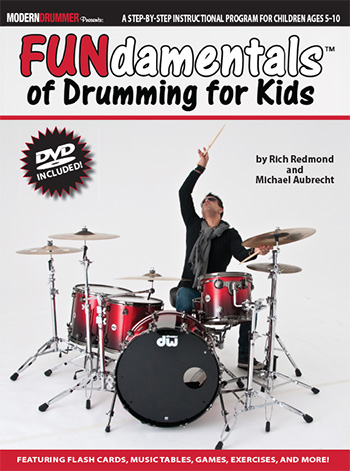 A few weeks ago I found myself involved in an online chat discussing the problematic habit of developing blisters while drumming. I got into a back and forth with one of the participants and this led me to their video which I found incredibly interesting. The video was that of a drumstick manufacturer who passionately declared that it was not his sticks that made the drummer but the drummer himself who was responsible. This led me to ask the individual if he would answer a few questions here on Off Beat to share his refreshing philosophy.
A few weeks ago I found myself involved in an online chat discussing the problematic habit of developing blisters while drumming. I got into a back and forth with one of the participants and this led me to their video which I found incredibly interesting. The video was that of a drumstick manufacturer who passionately declared that it was not his sticks that made the drummer but the drummer himself who was responsible. This led me to ask the individual if he would answer a few questions here on Off Beat to share his refreshing philosophy.
Hi Michael,
Thank you for the shout out and interview. It’s a real pleasure to be here with you and all your readers.
Fabulous questions Michael, thank you. You ask. “Why, as a drum manufacturer, would I place less emphasis on the stick and more on the work ethic?” Because you’re right. It’s a bit of a quagmire for a stick manufacturer to promote this kind of thinking. Because drum sticks aren’t just tools. They aren’t “simply extensions” of our limbs. Let’s face it. If music is an expression of our souls, drums must be the expression of our beating hearts. Which means there needs to be finesse, feel and soul. There needs to be a cognitive connection between our minds, our hearts and our brains flowing through our veins before our sticks ever hit the brass or the skins. Ultimately, sticks won’t tap out a groove all on their own. So for me, work ethic weighs in over stick choice every time.
As for how my experience has shaped my philosophy might be as simple as going back to the early 70s when I started playing and understanding the limited selections of sticks a drummer had to choose from. Because that’s where you’ll find the original 7A’s, 5A’s, 5B’s and the 2B’s and very little more. So! Stick choice wasn’t truly an issue when I was young and learning. However, later on thru the 80’s and 90’s as music genre’s started meshing and evolving, gear manufactures found their niche and absolutely flooded the markets with crazy varieties of products for playing louder, wilder with more color and designed for more technically proficient players.
On the flip side, stick manufactures, not so much. Even today, they still pretend to put out a wider variety of sticks. Pretending it’s new by adding colors or logos. Offer sticks that are a pinch thinner, or longer with a slightly different tip or fulcrum, but still counting on artist endorsements for sales. Not much change to speak of. And with so little change it makes me wonder how they do it. In fact! If you’re buying your sticks at a local brick and mortar store, you won’t even know what inch diameter your 5A sticks are much less its weight or length. You just pick out the shortest, smallest, fattest or longest, hold them in your hand and if it feels okay… you buy them.
Mad Hatter Stick Company, while continuing to pay homage to the North American hickory, we equally celebrate all other hardwoods around the world that share its same strength and dependability. Allowing us to combine these hardwoods, mix, match and innovate. Lending to the industry fun, provocative, great looking, handcrafted, and durable sticks with longer lengths, more accurate sizes while bringing awareness to today’s drummers more viable, killer options than ever before. And we do it all with the same passion as the drummers who play them.
And we do it all with the same passion as the drummers who play them.
We truly are making a difference. Choosing to concentrate on blunt ended sticks is one way we are doing that. If you’re playing style requires you to play with a tipped stick, there are companies out there for you. But for us here at Mad Hatter Stick Co. And those thousands of players who don’t need them, we provide a solid, great looking, longer stick with amazing balance, bounce and attack with more comprehensive options of width weights and lengths than the leading competition. Because we can.
Lastly, you asked me if these sticks are an extension of my own work ethic. And the answer is Yes! Michael, most definitely. Everything about these sticks came from my own needs as a drummer. And only when I realized there were other drummers that had the same needs, did I decide to move into making and designing them for others. From my shop to your hands. Turning the art of drum thumping into a whole new level of loud.
Thank you Michael for your time with me today. I’ve really enjoyed this interview with you and look forward to more in the future.
t. mills

























